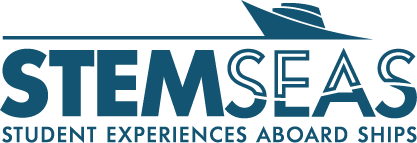IUP is being recognized for its participation in a program designed to bring a more diverse work force to ocean sciences.
The Frontiers of Ocean Science Symposium—led by the director of the United States National Science Foundation's Ocean Sciences Division, Terry Quinn—was delivered virtually and is available to view on YouTube.
Quinn opened the symposium, held on June 18, 2020, discussing how the NSF recognizes the pervasiveness of racism in our country and how it impacts the science and engineering environment. He continued to explain that inequities limit the participation and potential of Black people, and ocean sciences are strongest when a globally diverse workforce is engaged.
Quinn continued his presentation by giving examples of four diversity, equity, and inclusion programs which the NSF funds and participates. Included in the list is the Science Technology Engineering and Math Student Experiences Aboard Ships (STEMSEAS) Program, of which IUP Geoscience faculty member Jon Lewis is a co-principal investigator.
 The NSF STEMSEAS program is a three-year partnership between IUP and Lamont-Doherty Earth Observatory at Columbia University and has three main goals:
The NSF STEMSEAS program is a three-year partnership between IUP and Lamont-Doherty Earth Observatory at Columbia University and has three main goals:
-
Increase the number and diversity of students pursuing degrees and careers in geoscience
-
Prepare students for all possible career trajectories in the geosciences
-
Contributing to the evidence base for effective student engagement and learning in STEM
Former IUP student Katie Campbell was selected to participate in STEMSEAS, and in October 2018 she traveled on the RV Sikuliaq research ship to document the experience as a communications media student. Campbell, along with other students, was exposed to a wide range of cutting-edge methods aimed at research in oceanography, marine geology, and marine biology during the week-long journey. To date, she is the only IUP student accepted to the program.
The STEMSEAS program will continue through 2021, and Lewis says he and his colleague at Columbia will soon be discussing mechanisms to continue funding beyond that date. This year, the program was put on pause due to coronavirus, although 250 students from around the US submitted applications to sail on the fleet.
“This year we're pivoting to provide virtual experiences for as many of our applicants that we can accommodate,” Lewis said. “These will include ship-to-shore connections to research activities in real time using Zoom. Should be cool, but no match for going to sea. We hope that we're permitted to sail next year.”